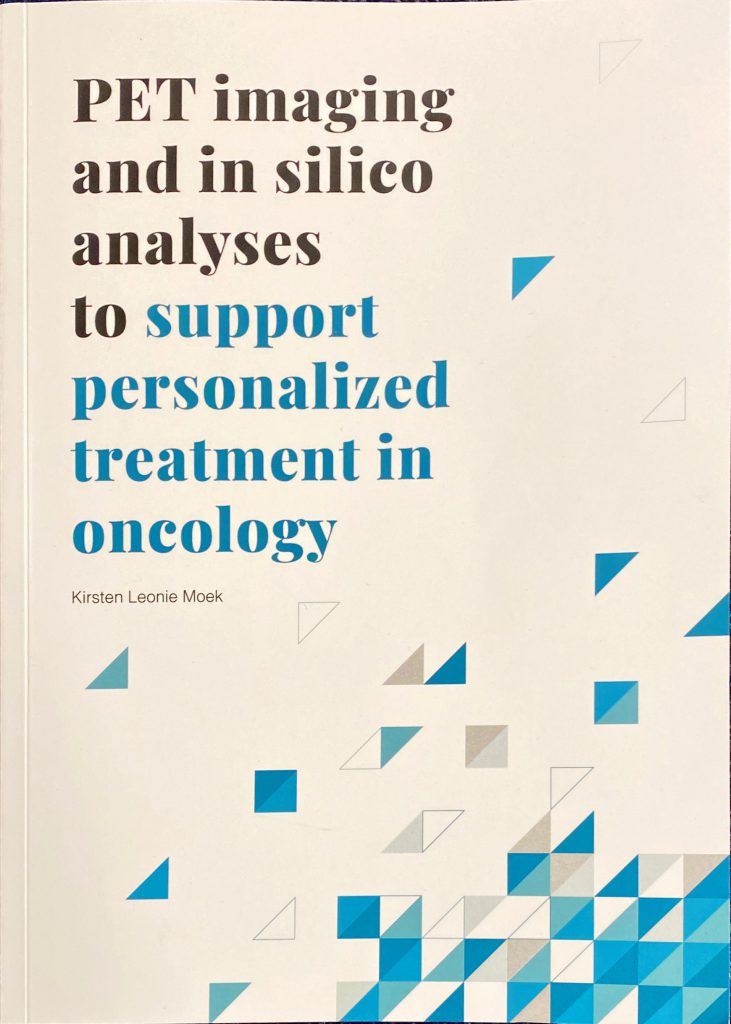On Monday February 24th, Kirsten Moek successfully defended his PhD thesis. See the summary description of his thesis below:
Over the last decades many molecules and key pathways in cancer were identified, which facilitated a shift in anticancer drug development from DNA-damaging chemotherapy to a more personalized approach with targeted antibody therapeutics including antibody-drug conjugates (ADC) and bispecific T-cell engagers (BiTEs). A major challenge in oncology is to identify those patients that will benefit from targeted antibody therapeutics. Eventually this should lead to ‘personalized medicine’ in which a specific drug is used to treat a tumor with specific molecular or genetic characteristics in a specifically selected patient. Therefore, it is important to assess tumor selective expression of molecular targets, which is usually done by immunohistochemistry (IHC), but there may also be a role for molecular PET imaging in selecting patients and predicting tumor responses. This thesis provides an overview of molecular PET imaging with antibodies in cancer patients. Moreover, results from a first-in-human PET study using a BiTE as tracer were published. With a plethora of targeted agents becoming available to treat patients with cancer, broad knowledge concerning frequency of target expression across tumor types is of importance to fully exploit therapeutic options. Performing large-scale, golden standard, IHC analyses for many drug targets is time-consuming and demands many resources. Therefore we used functional genomic mRNA profiling instead to predict target overexpression rates for the proteoglycan “glypican 3” and for 59 ADC targets across 60 tumor types and subtypes.
